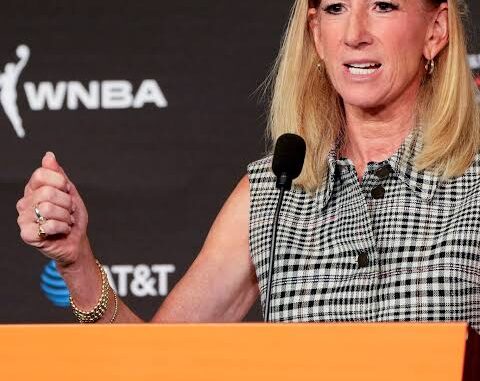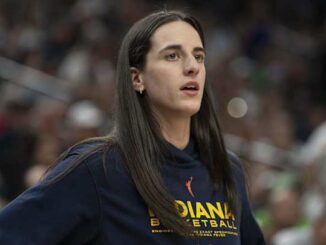
INDIANAPOLIS — Officiating has been a persistent and widely criticized issue throughout the WNBA season.
The Indiana Fever have faced several controversial moments, from a series of missed calls in a narrow May 24 loss to New York, to a heated June 18 matchup with the Connecticut Sun that saw six ejections and four technical fouls. More recently, on July 15, star guard Caitlin Clark had to be restrained after a remark from an official sparked tension.
Fever head coach Stephanie White voiced her frustrations after the June 18 game, pointing to how the athletes have evolved they’re stronger, faster, and more skilled but officiating hasn’t kept pace. “Everyone’s improving except the officials,” White said. “We need a solution. Every coach is talking about it.”
This isn’t a problem isolated to Indiana. Minnesota Lynx coach Cheryl Reeve and Golden State Valkyries coach Natalie Nakase have also raised concerns, criticizing the inconsistency and lack of game control from referees.
WNBA Commissioner Cathy Engelbert addressed the growing frustration ahead of the All-Star Game, assuring that officials are evaluated after every game and that efforts are underway to improve performance. “We take all input seriously. Every play is reviewed, and we dedicate hours to training officials,” she said. “Consistency is crucial, and we are always assessing it.”
White first called out the officiating on May 18, following a controversial 90–88 loss to New York. In the final 36 seconds, she cited two crucial non-calls one where Natasha Cloud hit DeWanna Bonner in the face after a block, and another where Cloud made contact with Clark while stealing the ball. A foul on Lexie Hull during that stretch also frustrated White, who couldn’t challenge the call due to no remaining timeouts.
White later said on May 24 that while teams can file complaints, she’s doubtful the system leads to meaningful change. “We don’t want special treatment. We just want consistent calls,” she stated. She was fined an undisclosed amount for those remarks.
On June 18, tensions boiled over. Clark was poked in the eye by Jacy Sheldon, prompting a confrontation that escalated when Marina Mabrey charged in and knocked Clark down yet was only assessed a technical and remained in the game.
Later, Fever guard Sophie Cunningham tangled with Sheldon, dragging her down during a layup attempt. That scuffle spilled toward the stands and ended in ejections for Cunningham (flagrant 2), Sheldon, and Allen.
White blamed officials for losing control early in the game. “These are elite competitors,” she said. “If you let things get too physical and don’t intervene, players are going to stand up for each other. We saw this coming from the first quarter.”
After reviewing the game, the league upgraded Mabrey’s technical to a flagrant 2 which would have resulted in an ejection had it been made during the game.
Engelbert reaffirmed that the league continues to train and evaluate officials, especially after contentious incidents. “There are consequences for poor officiating,” she said. “Every sport deals with this to some extent, but we’re committed to making sure officials match the level of talent on the court.”



Be the first to comment